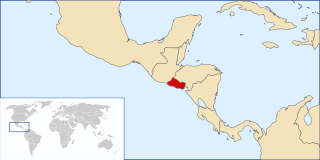ONUCA was a United Nations peacekeeping mission deployed in Central America in 1990 and 1991.

United Nations Security Council resolution 642, adopted unanimously on 29 September 1989, after recalling resolutions 598 (1987), 618 (1988) and 631 (1989) and having considered a report by the Secretary-General Javier Pérez de Cuéllar on the United Nations Iran–Iraq Military Observer Group, the Council decided:

United Nations Security Council resolution 644, adopted unanimously on 7 November 1989, after recalling Resolution 637 (1989), the Council endorsed the report by the Secretary-General and decided to establish the United Nations Observer Group in Central America (ONUCA) in accordance with the report.

United Nations Security Council resolution 651, adopted unanimously on 29 March 1990, after recalling resolutions 598 (1987), 619 (1988), 631 (1989) and 642 (1989), and having considered a report by the Secretary-General Javier Pérez de Cuéllar on the United Nations Iran–Iraq Military Observer Group, the Council decided:

United Nations Security Council resolution 653, adopted unanimously on 20 April 1990, after recalling resolutions 644 (1989) and 650 (1990), the council endorsed a report by the Secretary-General and authorised new additions to the mandate of the United Nations Observer Group in Central America.

United Nations Security Council resolution 654, adopted unanimously on 4 May 1990, after recalling resolutions 637 (1989), 644 (1989), 650 (1990) and 653 (1990), the council endorsed a report by the Secretary-General and decided to extend the mandate of the United Nations Observer Group in Central America for a further six months until 7 November 1990.

United Nations Security Council resolution 656, adopted unanimously on 8 June 1990, after recalling Resolution 654 (1990) and reviewing a report by the Secretary-General, the council decided to extend the tasks of monitoring the ceasefire, demobilising and separating the Contras and other forces of the resistance in Nicaragua until 29 June 1990.

United Nations Security Council resolution 671, adopted unanimously on 27 September 1990, after recalling resolutions 598 (1987), 619 (1988), 631 (1989), 642 (1989) and 651 (1990), and having considered a report by the Secretary-General Javier Pérez de Cuéllar on the United Nations Iran–Iraq Military Observer Group, the Council decided:

United Nations Security Council resolution 675, adopted unanimously on 5 November 1990, after recalling resolutions 637 (1989) and 644 (1989), the Council endorsed a report by the Secretary-General and decided to extend the mandate of the United Nations Observer Group in Central America for a further six months until 7 May 1991.

United Nations Security Council resolution 676, adopted unanimously on 28 November 1990, after recalling resolutions 598 (1987), 618 (1988), 631 (1989), 642 (1989), 651 (1990) and 671 (1990), and having considered a report by the Secretary-General Javier Pérez de Cuéllar on the United Nations Iran–Iraq Military Observer Group, the Council decided:

United Nations Security Council resolution 685, adopted unanimously on 31 January 1991, after recalling resolutions 598 (1987), 618 (1988), 631 (1989), 642 (1989), 651 (1990), 671 (1990) and 676 (1990), and having considered a report by the Secretary-General Javier Pérez de Cuéllar on the United Nations Iran–Iraq Military Observer Group, the Council decided:

United Nations Security Council resolution 719, adopted unanimously on 6 November 1991, after recalling resolutions 637 (1989), 644 (1989), 675 (1990) and 691 (1991), the Council endorsed a report by the Secretary-General and decided to extend the mandate of the United Nations Observer Group in Central America for a further five months and twenty-three days until 30 April 1992.

United Nations Security Council resolution 729, adopted unanimously on 14 January 1992, after recalling resolutions 637 (1989), 693 (1991) and 714 (1991), the Council welcomed the conclusion of agreements by the Government of El Salvador and the Farabundo Martí National Liberation Front to bring about an end to the ongoing civil war in El Salvador and the Secretary-General's intention to end the United Nations Observer Mission in El Salvador.

United Nations Security Council resolution 730, adopted unanimously on 16 January 1992, after recalling resolutions 719 (1991) and 729 (1992) the Council approved a report by the Secretary-General from 14 January, and decided to terminate the mandate of the United Nations Observer Group in Central America (ONUCA) with effect from 17 January 1992.

United Nations Security Council resolution 784, adopted unanimously on 30 October 1992, after recalling resolutions 637 (1989), 693 (1991), 714 (1991) and 729 (1992), the council approved a decision by the Secretary-General Boutros Boutros-Ghali to extend the mandate of the United Nations Observer Mission in El Salvador (ONUSAL) for a further month until 30 November 1992.

United Nations Security Council resolution 791, adopted unanimously on 30 November 1992, after recalling resolutions 637 (1989), 693 (1991), 714 (1991), 729 (1992) and 784 (1992), the Council approved a decision by the Secretary-General Boutros Boutros-Ghali to extend the mandate of the United Nations Observer Mission in El Salvador (ONUSAL) for a further six months until 31 May 1993.

United Nations Security Council resolution 832, adopted unanimously on 27 May 1993, after recalling resolutions 637 (1989), 693 (1991), 714 (1991), 729 (1992), 784 (1992) and 791 (1992), the council noted a report by the Secretary-General Boutros Boutros-Ghali and enlarged the mandate of the United Nations Observer Mission in El Salvador (ONUSAL) to include the observation of the electoral process.

United Nations Security Council resolution 888, adopted unanimously on 30 November 1993, after recalling resolutions 637 (1989), 693 (1991), 714 (1991), 729 (1992), 784 (1992), 791 (1992) and 832 (1993), the council expressed concern at aspects of the situation in El Salvador and extended the mandate of the United Nations Observer Mission in El Salvador (ONUSAL) until 31 May 1994.
United Nations Security Council resolution 920, adopted unanimously on 26 May 1994, after recalling resolutions 637 (1989), 693 (1991), 714 (1991), 729 (1992), 784 (1992), 791 (1992), 832 (1993), 888 (1993), the council discussed the implementation of peace agreements in El Salvador and extended the mandate of the United Nations Observer Mission in El Salvador (ONUSAL) until 30 November 1994.

United Nations Security Council resolution 961 was adopted unanimously on 23 November 1994, after recalling resolutions 637 (1989), 693 (1991), 714 (1991), 729 (1992), 784 (1992), 791 (1992), 832 (1993), 888 (1993) and 920 (1994), the council discussed the implementation of peace agreements in El Salvador and extended the mandate of the United Nations Observer Mission in El Salvador (ONUSAL) for a final time until 30 April 1995.









